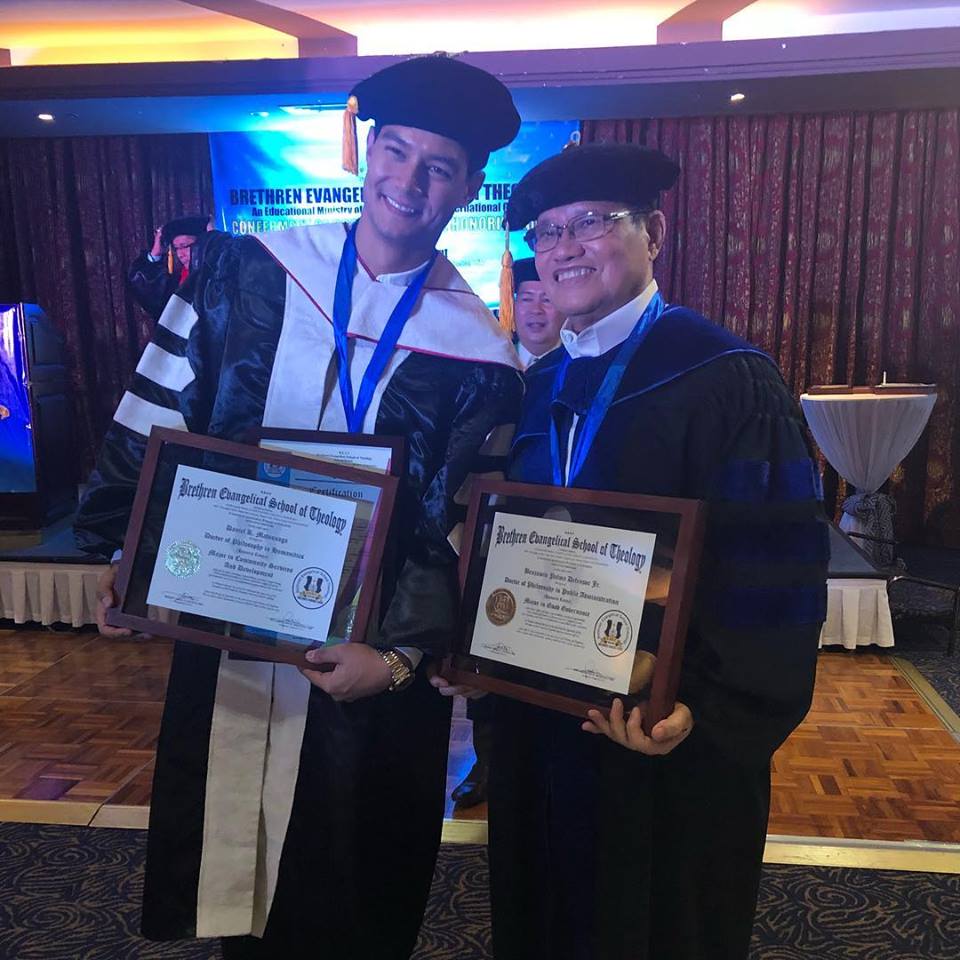
After the Commission on Higher Education (CHED) said the school that conferred him with an honorary doctorate degree has “no authority,” will Daniel Matsunaga return the award he received?
This issue was finally addressed by Daniel in a showbiz report by Umagang Kay Ganda on Wednesday, September 19.
“I’m really, really happy. I’m really blessed to have received that award. I would never say or think that I would give the award back,” he said.
CHED previously said Brethren Evangelical School of Theology (BEST) in Gapan, Nueva Ecija is unauthorized to give Honoris Causa to Daniel nor to any individual, as according to the Commission’s records, the school did not apply for an authority to operate and was also not recognized as a Higher Education Institution (HEI) in the country.
[READ: CHED: Nueva Ecija school that granted PhD to Daniel Matsunaga not recognized]
Based on the CHED Memorandum Order (CMO) No. 19, series of 2014, only HEIs that existed for at least 25 years and possess a “well-acknowledge academic reputation, institutional values and mission, among others” can award such honorary doctorate degree.
Despite this issue, Daniel chose to keep his honorary Ph.D. in Humanities, major in Social Work to himself as it means a lot not only to him but also to his family.
“It’s something that… it is a blessing to my life no matter what,” the Japanese-Brazilian model-actor said.
In the same report, BEST president and founder Bishop Ariel Coleto also made it clear that they conferred the award to Daniel not as a ‘course,’ but as a recognition to his contributions to community services.
CHED also said it shall impose necessary sanctions against the school in connection to the offering of degree programs “upon compliance with the due process of law.”
However, BEST, in its September 17 Facebook post, said the Commission “cannot and has no jurisdiction to interfere with the religious educational program of the church to confer doctorate degrees of its own because the church has its autonomous right to do so.”
“The church has equal powers with the state in terms of their unique governance, one is ecclesiastical in nature while the other is more of state, worldly affairs,” it added.